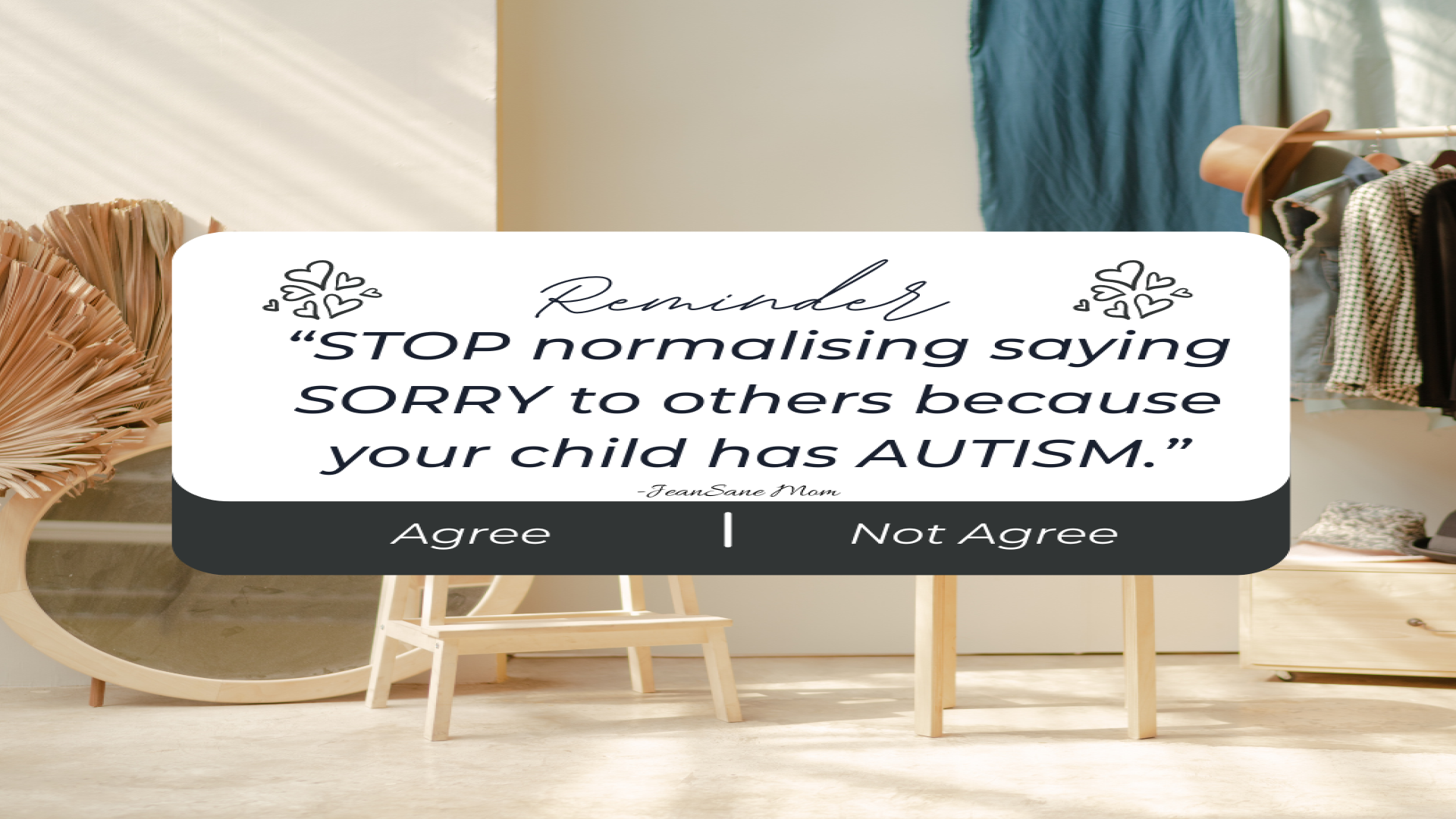My child has Autism, I am Sorry.
When my daughter Elaisha was newly diagnosed with Autism Spectrum Disorder (ASD), this is what I always do, I always say sorry, I always explain to other people who are looking at us every time she is having meltdowns. I always say sorry to the people who are inside the jeepney that we are in, every time she felt uneasy because it is really crowded . I always say sorry every time she unintentionally stepped on someone’s shoes or pants because of her uncomfortable feeling inside a crowded place. I always say sorry whenever she cry out loud because she cannot express that she is hungry or sleepy. I always say sorry whenever she sings aloud as part of her stimming (self-stimulatory behavior).

Meltdowns
Meltdowns happens to the children on the spectrum whenever they are overwhelmed by a situation, this cause intense behavioral response that he or she cannot control, in short it is involuntary. This lost of control can be expressed by the child verbally or physically or both. Most of the time, meltdowns are caused by overstimulation of sensory inputs that is difficult to process by the child’s central nervous system. There are different reasons that triggers meltdown of a child on the spectrum like anxiety, unable to express their feelings, change in routines or even because of a simple sound, that is why it is important for us parents to know what are the things that may trigger their meltdowns.
As for my daughter Elaisha, during the first few months after she was diagnosed with ASD, crowded places and change in routine has a big part on her meltdowns. But as much as I want her not to experience meltdowns, we don’t have choice that time but to ride a public transport since we cannot afford to buy a car yet. And again meltdowns are involuntary.
So instead of saying sorry to other people whenever our child on the spectrum is experiencing meltdowns we should be:
- Calm – It’s not that easy I know, especially if the meltdown happens in public places such as mall or groceries, but believe me being irritated or hot tempered will do o good but will just add up to the distress that your child kis experiencing.
- Know the triggers- Again meltdowns has variety of triggers and we should identify the cause of the triggers it can be the light, the sound or the smell of the place that you are currently in. Also knowing the triggers of your child’s meltdown can help lessen the distress in the future .
- Give your child a little time- As parents, we also have to acknowledge what they feel and we cannot just tell them to stop right away. staying with your child throughout the process will let them feel that they are safe. Remember, you are your child’s safest place and comfort.
- Sensory Toolkits- If going to a place (and you can’t avoid it) where your child on the spectrum may experience meltdown, sensory toys would be a great help to reduce distress and regulate their emotions. For example, fidget toys, stress balls, sunglasses, headphones or whatever thing that you know will work on your child.
Meltdowns can be challenging, because every child on the spectrum is different and they have different triggers , that is why it is important to understand that every time they are having meltdowns they don’t have control over their behavioral responses. That is why as parents we don’t have to be sorry or say sorry to any one because during this situation our priority should be our child’s safety.
Our Children with spectrum are so pure and innocent that is why we should not be sorry for every meltdowns. What they need is understanding. We are all created differently but equally, that is why there is nothing to be sorry.
Kids with #AUTISM are still kids, hopefully one day people will learn to understand “INCLUSION” for the people in the spectrum.
For the other #AuSomeMoms and #AusomeParents like me, remember there’s nothing to be sorry about.
“Stop normalizing saying SORRY to other people because your child has Autism”.





